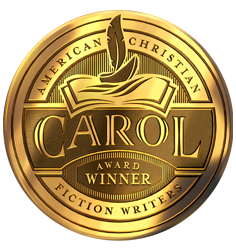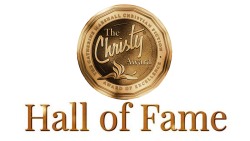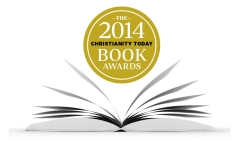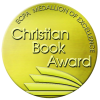Q&A with Chris Fabry
Q: Your recent novel Not in the Heart faces heavy topics such as gambling, capital punishment and organ donation. Where did you get your inspiration for the book?
My stories usually come from some aspect of real life. I worked in TV news with a friend who went on to work for CNN. He was the pool reporter for an execution of a man in South Carolina. That really affected him for a number of years and his views on capital punishment were altered. We have friends with a young son with a heart condition and many friends have marriages that are on the brink or have crumbled. There is also spiritual searching and gambling, so I feel it's a pretty realistic picture of a lot of relationships.
Q: Several of the characters in Not in the Heart deal with life-changing addictions. Have you struggled with addiction in your own life?
I've never been diagnosed with an addiction, but I can see how most people are addicted to something. We depend on something outside of us to make us happy, give us a good feeling. I've had issues with food and soft drinks and sports. That's more respectable than gambling or cocaine or alcohol, but I'm in the same boat in a lot of ways. Anything we use to make ourselves numb to reality, numb to life, can restrict our relationship with God.
Q: What encouragement would you offer to your readers who may be dealing with an addiction? What encouragement would you give to the family of an addict?
To the addict, I would say that there is hope for you. There is hope for your relationships. God offers you freedom if you will choose it. It's not an overnight thing—it can be, but it usually isn't. If you want freedom, you can have it.
To the family, I would say to hang in there, and love the other person well. Sometimes loving the other person means letting them go. It can look messy and not feel like love.
Q: Is addiction usually the result of other factors going on in one's life? What drove the addiction of the character in your book?
My main character has an addictive personality, no doubt. The factors in his life are like those in society—the more stress, the more anxiety and pain, the more likely a person is to seek something that will soothe them and help them dull that pain. For some it's drugs or alcohol, for others it may be sex or gambling. For some it's food. It can really be anything that takes away the intense pain that person is experiencing. I'm not an expert or a psychologist, but I've observed addictions in people's lives stemming from those surface struggles, but the addictions go way deeper.
Q: Problem Gambling Awareness Week followed soon after the release of your novel (March 4-10, 2012). Do you know how many Americans struggle with an addiction to gambling?
I have seen stats that say as many as 15-20 million people in the US are addicted to gambling. That's 5-7% of the entire population. And those numbers are only going to go up with the increase in availability.
Q: You have had your own struggles over the past few years. Tell us about some of what your own family has gone through in regards to having to start over.
Our family moved into a huge home in Colorado in 2000. Soon after we started seeing some unusual physical problems that accelerated after we found mold growing behind a bathroom wall. The remediation was done incorrectly, and our problems got worse. We walked away from the house in 2008 with the clothes on our backs and moved to Arizona to get treatment. It's been one of the most difficult things to go through, watching our children suffer, but also one of the most rewarding because we've seen God work in spite of our illnesses and losses.
Q: Didn't your children become ill as a result of the mold problem? Much like your main character, you had to watch them struggle without much you could do to help. How did you work your own experience into this story?
Six weeks after the first exposure one son contracted Type 1 diabetes, which doesn't run in our family. Another son had ringing in one ear and as a result of surgery to correct it, he's now deaf in that ear. I could go on with the sicknesses of the kids, but yes, watching our kids suffer helped in writing the book. I can see why Truman would want to run away from the pain. I also met a little boy named Levi who has a heart problem, and I extrapolated the pain his parents had gone through in deciding about his surgery.
Q: February 14th is the National Organ Donor Day. Do you know how many people in our country are waiting for an organ donor?
There are 70-80 organ transplants done every day, I believe. On the downside, about 18 people die every day awaiting an organ transplant. I've known several people who have undergone a transplant of a kidney or a liver, and the change in lifestyle is amazing.
Q: What do you hope your readers will take away from reading Not in the Heart?
Love conquers all. What is done in secret will one day come to light. God is the great pursuer of our hearts and we are restless until we find our rest in him. There is hope for even smarmy characters who set up their own morality. There is hope for the addicted.




